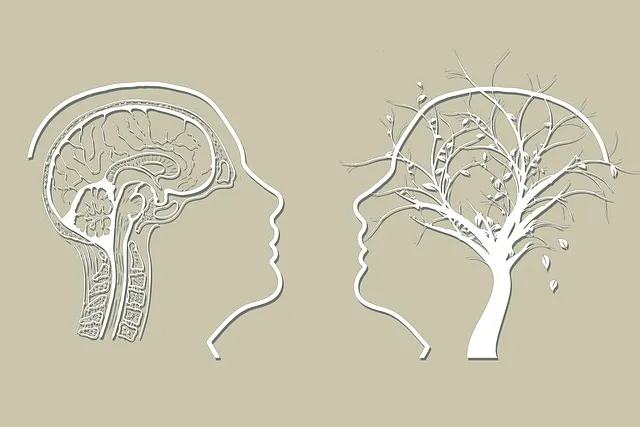Mental wellness coaching is gaining importance as a key aspect of overall health, with programs offered by Kaiser Permanente behavioral health providers in Louisville leading this charge. These initiatives target common issues like anxiety and social skills deficiencies, breaking down stigma through personalized guidance and empowerment. Designing such programs involves analyzing local mental health trends, collaborating with community stakeholders, and integrating evidence-based techniques (e.g., CBT) with creative strategies. Through comprehensive assessments and regular evaluation, these programs cater to individual needs, fostering continuous learning for both clients and coaches alike.
Mental wellness coaching is a growing necessity within healthcare systems, particularly for organizations like Kaiser Permanente. This article explores the development of tailored coaching programs for Kaiser Permanente’s behavioral health providers in Louisville. We delve into the significance of addressing mental health challenges and provide a comprehensive guide to designing effective coaching initiatives. Through practical strategies for implementation and evaluation, this resource aims to empower providers to create sustainable positive changes for patients’ mental wellness in Louisville.
- Understanding the Need for Mental Wellness Coaching in Healthcare
- Designing Effective Programs: A Step-by-Step Guide for Kaiser Permanente Behavioral Health Providers in Louisville
- Implementation and Evaluation Strategies for Successful Coaching Initiatives
Understanding the Need for Mental Wellness Coaching in Healthcare

In today’s fast-paced world, mental wellness is an integral aspect of overall health and well-being. This realization has led to a growing recognition of the need for specialized support, particularly through mental wellness coaching. Programs like those offered by Kaiser Permanente behavioral health providers in Louisville are stepping stones towards improving mental healthcare. These initiatives aim to address various issues, including anxiety relief and social skills training, which often go unnoticed or undiagnosed.
The importance of such coaching cannot be overstated, especially when considering the impact of mental illness stigma reduction efforts. By providing personalized guidance, these programs empower individuals to take charge of their mental health. This proactive approach has the potential to transform lives, fostering a sense of balance and resilience in the face of modern-day challenges.
Designing Effective Programs: A Step-by-Step Guide for Kaiser Permanente Behavioral Health Providers in Louisville

Designing Effective Mental Wellness Programs for Kaiser Permanente Behavioral Health Providers in Louisville involves a structured approach that aligns with the unique needs of the community. The first step is to assess local mental health trends and identify gaps in existing services. This data-driven approach ensures programs address pressing issues, like rising anxiety levels among youth or increasing rates of depression in specific demographics.
Next, collaborate with diverse stakeholders including community organizations, schools, and local businesses to foster a holistic support system. Co-creating initiatives can lead to more inclusive and accessible stress management workshops and public awareness campaigns development tailored to the Louisville community. Incorporate evidence-based techniques such as cognitive behavioral therapy (CBT) alongside creative strategies like mindfulness practices and confidence-boosting activities for comprehensive, effective coaching programs.
Implementation and Evaluation Strategies for Successful Coaching Initiatives

The successful implementation of mental wellness coaching programs requires a strategic approach. Kaiser Permanente behavioral health providers in Louisville have pioneered innovative strategies for such initiatives. One key aspect is aligning coaching goals with individual client needs, ensuring personalized journeys. This involves comprehensive assessments to gauge areas like self-esteem improvement and anxiety relief, which are common focal points in mental health education programs design.
Evaluation is another critical component. Regular check-ins and progress tracking enable coaches to adapt their methods effectively. By measuring success through qualitative and quantitative means, these programs can showcase tangible improvements, fostering a culture of continuous learning. This iterative process, combined with tailored interventions, enhances the overall impact on clients’ mental wellness, creating a positive feedback loop that benefits both coach and coachee alike.
Mental wellness coaching programs, as implemented by Kaiser Permanente behavioral health providers in Louisville, offer a promising approach to enhancing patient care and overall mental health. By following the step-by-step guide outlined in this article, healthcare professionals can effectively design and implement coaching initiatives that cater to the unique needs of their patients. Through rigorous evaluation and strategic implementation, these programs have the potential to revolutionize mental healthcare, ensuring better outcomes and improved well-being for individuals within the community.






